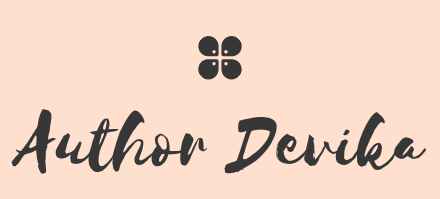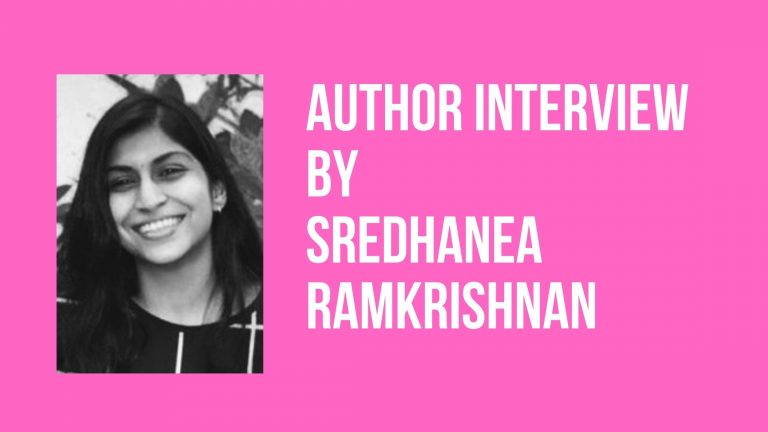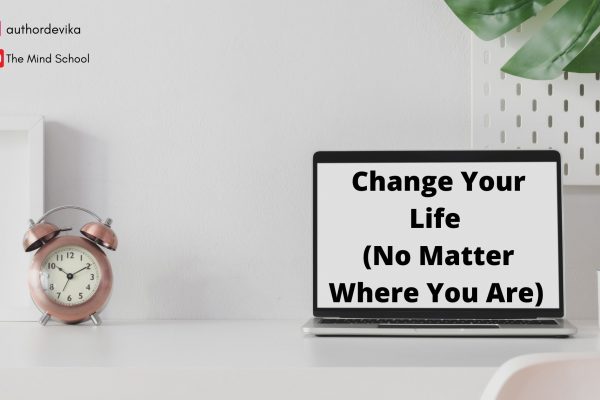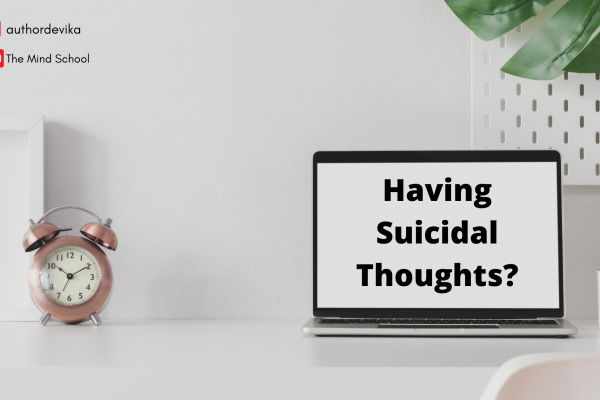Section 1:
1.Conscience, though subjective, could one be born with the basic blueprint of it, or is it just acquired by experiences and conditioning?
Answer: It is acquired. A person’s behavior/mindset develops due to a few factors – observation, experience, and our own capabilities, culture, race, attitude, and perception. We also inherit genes from our elders; these genes contain information that affects our behavior. That’s why maybe they say that the son pays for the sins of the father.
2. Self-therapy is known to aid in controlling emotions, But when one is already in a state of despair, don’t you think an outsider perspective would be more effective?
Answer: You need to learn self-therapy and self-healing. Self-therapy doesn’t happen on its own. In the initial stages of therapy, you need the help of a counselor or psychotherapist. But, once you start seeing the difference within you, you can start maintaining a standard routine of self-healing.
I would like to present the example of a gym trainer. You hire a gym trainer to learn which exercise is best for your body type and then you just practice the set of exercises regularly to maintain a fit body.
3. How effective is the role of sound, natural scenery, smell, etc. in influencing our emotions?
Answer: The sensory organs play an important role in influencing our behavior. The mind processes the information collected by these organs. So, we need to use these wisely and try to filter out the disturbing information by nipping it in the bud. However, we need to be open-minded and objective on how we perceive the information collected by these organs.
4.Many emotions wouldn’t have a discrete source, do you have an exercise to navigate through this puzzle?
Answer: Self-analysis and creative journaling is a good method to understand the course of actions and how we behave at different moments. Tips for self-analysis:
- Jot down your feelings
- Divide them into positive and negative
- Take a stock of the emotional ride throughout the day.
- Next day, act on reducing the negative actions.
- Make a list of things/activities that make you happy. Try to include those items in your daily journal.
5. As most nonverbal cues have different meanings in different cultures and regions, How can one overcome the misinterpretations stemming from them?
Answer: In Rome, do as the Romans do. First, we need to increase our knowledge about different cultures in order to become global citizens. There are a wide variety of sources to gain knowledge. There is no joy in limiting yourself. For example, traveling is a great learning experience. Visit a new place, learn about its people, culture, etc. before imposing your own belief system. We need to accept that every person has a different set of beliefs. We must respect differences of opinion.
Section 2:
1. How to avoid the Halo effect or personal biases while listening to someone in a conversation?
Answer: Being objective comes with practice. You must listen with a free mind. You must listen with good intention. When the personal bias is involved, your intention is not good. You are narrow-minded.
- Stop believing that you are Know-It-All.
- Accept that you don’t know everything
- Look forward to learning something new from the person who is speaking.
- Be a student 🙂
2.Though theorists propound and even put into use Type-A, Type -B theory, don’t you think practically every human is a combination of traits of both types? And they bring out the type that particular situation demands?
Answer: True, But some traits dominate the other which helps psychologists classify these types.
Section 3:
- What are the variables that make or break a habit cycle?
Answer:
- Perseverance
- Continuous action
- Motivation
- Confidence that the habit is getting good results for you
- Positive Affirmations for Acceptance from peers
- Patience
2. You talk about being true to yourself and real with your feelings but also about distracting yourself or foregoing negative emotions, don’t you think these are contradicting each other?
Answer: No. Being real with yourself means even if you are experiencing a negative emotion you must acknowledge it when it occurs for the first time. However, when it repeats, you must consciously try to distract yourself from the temptation of being drawn towards the negative emotion.
3. Though first impressions play a major role in any social setting, there are times when we are thrown into situations handling an unanticipated meeting or caught unprepared. How should one aspire to make a good first impression despite such shortcomings?
Answer: You must know your capabilities and shortcomings and be honest about yourself. Accept your strengths and weaknesses. Don’t get upset about what you don’t know. It is better to be honest rather than putting up an act. In an unanticipated meeting, it is better to be the observer for the first few minutes and then present your views.
4. In a virtual world that we presently live where not most conversations are face to face, do you still think the effectiveness of non-verbal communication is relevant?
Answer: Virtual communication has brought forth the importance of non-verbal communication. Our face does not lie. If we don’t like an event but we need to stay logged into it, we cannot show a dull face. We need to show interest. The virtual world is forcing us to fake ourselves.
5. How to take notice and handle attribution errors?
Answer: Accepting that nobody is perfect and willingness to learn from others will make a person objective. It is based on our ethics and values that we adopt in our personal life. Try to unlearn the biased thoughts that you were fed as a child and rationalize whether your action was biased or objective. https://www.inc.com/jayson-demers/7-strategies-for-making-objective-decisions.html This is a good link for tips on becoming objective.
Section 4:
1.There are multiple mentions of spirituality in your book. How big a part do you think it plays in self-growth and happiness?
Answer: Spirituality plays a big role in my life to invest my energy in increasing my self-worth and happiness. Spirituality has given me the sense of respecting humanity and the need for preserving humanity in order to create social harmony. I know that I have a purpose in life and I am guided by a strong power in the Universe which halts me when I am about to take a wrong step. The intuition has grown with experiences and with the fact that I faced all the challenges that life has thrown to me.
2. Most people know or realize the value of being kind to others, How vital do you think it is to be kind to oneself ?
Answer: First of all, one needs to be kind to oneself and then be kind to others. You cannot give if your jar is empty.
3. Though depression is often a taboo in India, it was refreshing to know the various types and intensities of it through your book. Is the mind game your way of creating awareness on mental health or was it just a cathartic experience you used to deal with your own internal struggles?
Answer: A bit of both. Higher weightage was given to the need of spreading awareness about mental health in India and telling people that life is given once and beautifully, so live it to the fullest.
4. Which one of the 18 steps towards eternal happiness do you think is the most difficult and why?
Answer: Step 13 – Speaking the truth about yourself. We do not acknowledge our dark side. We always love to talk highly about ourselves but what about things we don’t know. ‘I don’t know’ is a statement we don’t like to hear.
Section 5:
1. Though anger is usually looked at as a negative emotion, there’s a need for justified anger in this day and time, like when a person gets angry about the injustices meted out to others, animals or even the environment, what is your take on that?
Answer: I support protests and anger against injustices but we must be mindful that in doing so we should not break the law. Otherwise, we are nothing but egoists. Carry out silent protests and practice non-violence. If one is in the right, persevere to get justice the right way. Fight till the end. .
2. Would you suggest venting as a healthy way to manage anger?
Answer: Absolutely. But we must find healthy ways to vent out frustration and anger. Do not vent out your anger on social media. It becomes flamboyant and you go out of control and do not abide by societal norms. Often, we suppress our frustration which bursts as a volcano after some years. If immediate response to stimulus is offered, the issue will be nipped in the bud. For example, if a friend makes a comment that upset you, let your friend know. Do not keep it with you because that will make your relationship bitter.
3. Mostly creativity is associated with emotions of sadness or loss, do you think it can work for anger too?
Answer: Definitely. Knowledge of color therapy will help people understand what emotions they are going through. I write when I am frustrated or just scribble haphazardly when I am angry or listen to loud music, which lets me scream my lungs out.
Section 6:
1. Keeping in mind the debate of work-life balance, what if work is deemed as life by someone?
Answer: When work is deemed as life there are two options: either you are forced to work as you need to fulfil responsibilities. Alternatively, you love doing it so that you can spend 24/7/365 and not feel stressed even a bit. If the former is your case, you must prioritize the activities that can give you comfort/peace of mind for at least 5 to 10 minutes a day. Everyone has 24 hours in a day. Some spend 14 to 18 hours without being stressed at all.
2. Do you feel ‘Monday blues’ is a hashtag or concept that needs a rethink?
Answer: It is a stereotype. I have never experienced Monday Blues as I look forward to going back to the office after two days of week off. We don’t like to work hard and want to earn easy money. We need to change this thought process and reward those who believe in hard work and achieving success by putting efforts and perseverance.
3. Sometimes the line between self-esteem and ego might get blurry, How do you propose to discriminate between these two?
Answer: Self-esteem is a positive attitude as it constantly reminds you that you are walking on the right path. On the contrary, ego makes persons feel high about themselves while considering others as below par. It is a perfect case of high-handedness. Gratitude and humility helps restore self-esteem while pride fills our mind with ego.
4. Do you think organizational behavior dominates personal behavior or is it the other way around?
Answer: Both complement each other. Your personal behavior will reflect in your work ethic, rapport with colleagues, understanding of your role in the organization. In some situations, you might be forced to act against your natural behavior to control a situation in office, but you need to analyze the pros and cons of the action & outcome. You will feel guilty when you do it for the first time.
5. What are the parameters to evaluate the worth of your job?
Answer:
- Are you getting the right opportunity to grow in your career?
- Are you being compensated fairly in terms of your organizational level and experience level and contribution to the organization?
- Do your seniors listen to you?
- Do your seniors acknowledge your contribution?
- Do you get an opportunity to expand your learning curve?
- Can you manage to save a bit from your salary?
- Use your leaves to go for short vacations to break the monotony
6. How to manage action over intention biases in a professional setting?
Answer: Your actions need to match your intentions in order to have peace of mind at the workplace. Do not compromise with your basic values just to save a job. Stick to the morals. Be smart if you have to engage in an unethical activity in the sense that you should know about the repercussions in case the news gets leaked. You cannot allow anybody to take advantage of your life be it personal or career.
ABOUT
Sredhanea Ramkrishnan is a food technologist by profession and an aspiring author by passion. Sredhanea has written more than 20 blogs in the Coffelicious publications of Medium. She has published 7 Self-help articles in magazines like ‘The Infinithoughts’ and is a Freelance content writer for Carty studios. Her debut historical fiction “THE CORD” won the Best Aspiring Author award from ‘The Cherry Book awards’. She is also a co-host of LOL-Love of a Literature, a podcast for aspiring authors.





